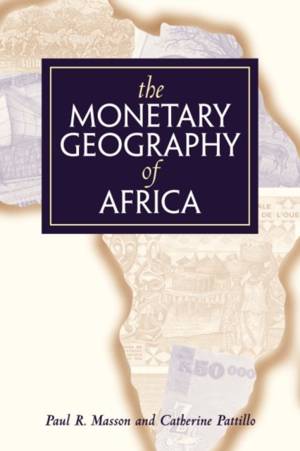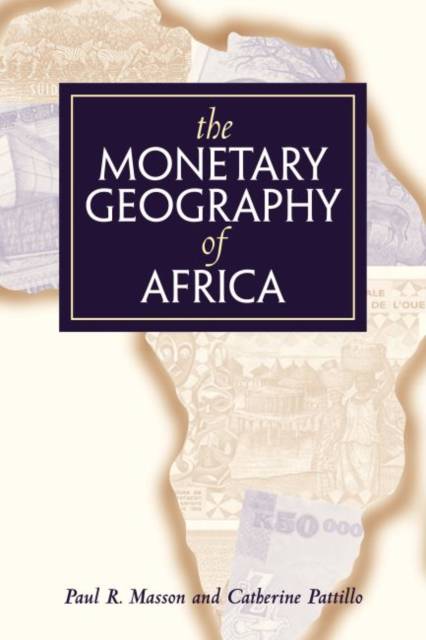
- Afhalen na 1 uur in een winkel met voorraad
- Gratis thuislevering in België vanaf € 30
- Ruim aanbod met 7 miljoen producten
- Afhalen na 1 uur in een winkel met voorraad
- Gratis thuislevering in België vanaf € 30
- Ruim aanbod met 7 miljoen producten
Omschrijving
Africa is working toward the goal of creating a common currency that would serve as a symbol of African unity. The advantages of a common currency include lower transaction costs, increased stability, and greater insulation of central banks from pressures to provide monetary financing. Disadvantages relate to asymmetries among countries, especially in their terms of trade and in the degree of fiscal discipline. More disciplined countries will not want to form a union with countries whose excessive spending puts upward pressure on the central bank's monetary expansion. In T he Monetary Geography of Africa, Paul Masson and Catherine Pattillo review the history of monetary arrangements on the continent and analyze the current situation and prospects for further integration. They apply lessons from both experience and theory that lead to a number of conclusions. To begin with, West Africa faces a major problem because Nigeria has both asymmetric terms of trade--it is a large oil exporter while its potential partners are oil importers--and most important, large fiscal imbalances. Secondly, a monetary union among all eastern or southern African countries seems infeasible at this stage, since a number of countries suffer from the effects of civil conflicts and drought and are far from achieving the macroeconomic stability of South Africa. Lastly, the plan by Kenya, Tanzania, and Uganda to create a common currency seems to be generally compatible with other initiatives that could contribute to greater regional solidarity. However, economic gains would likely favor Kenya, which, unlike the other two countries, has substantial exports to its neighbors, and this may constrain the political will needed to proceed. A more promising strategy for monetary integration would be to build on existing monetary unions--the CFA franc zone in western and central Africa and the Common Monetary Area in southern Africa. Masson and Pattillo argue that the goal of a creating a single African currency is probably beyond reach. Economic realities suggest that grand new projects for African monetary unions are unlikely to be successful. More important for Africa's economic well-being will be to attack the more fundamental problems of corruption and governance.
Specificaties
Betrokkenen
- Auteur(s):
- Uitgeverij:
Inhoud
- Aantal bladzijden:
- 217
- Taal:
- Engels
Eigenschappen
- Productcode (EAN):
- 9780815755005
- Verschijningsdatum:
- 30/11/2004
- Uitvoering:
- Hardcover
- Formaat:
- Genaaid
- Afmetingen:
- 161 mm x 236 mm
- Gewicht:
- 503 g

Alleen bij Standaard Boekhandel
Beoordelingen
We publiceren alleen reviews die voldoen aan de voorwaarden voor reviews. Bekijk onze voorwaarden voor reviews.











